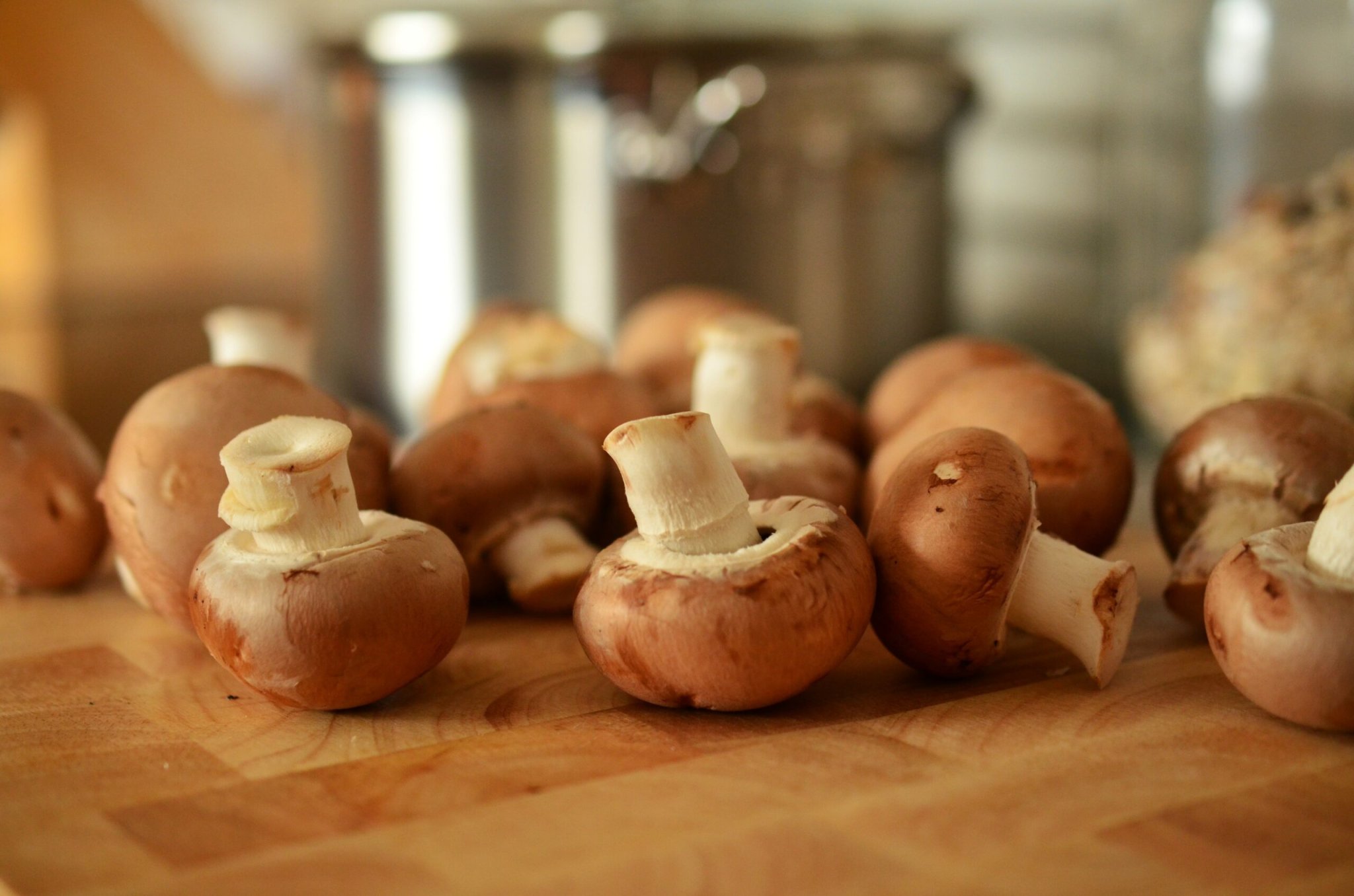

This post has been updated. It was originally published on 3/26/2018.
Even setting aside magic mushrooms, our favorite fungal fruiting bodies supposedly have some spectacular health benefits. Mushrooms are verging on a superfood at this stage. Search for the benefits of eating mushrooms and you’ll turn up pages of info about how they can treat or prevent everything from cancer to heart disease.
But as a savvy reader, you might wonder how much of the hype is really true. Are mushrooms good for you? Or is this all just overblown? The nutrients in mushrooms are certainly of value, and the health benefits may surprise you. We dug into the science and came up with four excellent reasons to eat your ‘shrooms.
They’re one of the few vegan sources of vitamin D (kind of)
You only need 10 to 15 minutes of sunshine three times a week to get your necessary dose of vitamin D, but if you’re still running low you can supplement with food sources. The only problem? They’re all from animals. Fatty fishes (or fish liver oil) and fortified dairy products are the main repositories. Some cereals are fortified with it, but they don’t pack much of a punch. Mushrooms, on the other hand, produce vitamin D naturally and in abundance. One study estimates that a 100-gram serving (that’s 3.5 ounces) would give you 50 to 100 percent of your daily dose. There’s just one problem: they only make vitamin D if they’re exposed to UV light. According to studies about the vitamin D content of mushrooms, fresh mushrooms should get plenty of exposure. But many commercially available sources are grown in the dark, then shipped around in closed containers. Some large growers do intentionally irradiate their crop, however.
They’re full of fiber and low in fat
By weight, many mushroom species are at least 50 percent carbohydrates (many are well above 60 or 70), and though we think of carbs as starchy or unhealthy, most of the carbs in mushrooms are actually fiber. A mushroom’s cells have all kinds of non-digestible carbohydrates, which is what we call dietary fiber, and that fiber fuels the healthy microbes in your gut.
As a bonus, they also have other nutrients like selenium, copper, niacin, phosphorous, and potassium—all elements important (in small amounts) for your health. Cooking mushrooms helps release these, so toss those ‘shrooms in a frying pan before chowing down.

They might help stave off cancer, heart disease, and neurodegenerative diseases (but we’re not sure yet)
There have been a number of studies claiming to find links between mushrooms and various diseases. Some note that people who eat more mushrooms tend to have lower rates of cancer or heart disease, while others look at how specific nutrients isolated from mushrooms affect cells in the lab. Various components are anti-inflammatory, for instance, and others purportedly fight tumors or protect the nervous system. One recent study linked mushroom consumption to less cognitive decline in old age.
But these claims lack solid proof, which makes the actual health benefits of mushrooms difficult to pin down. A meta-analysis of such studies concluded that most were poorly designed, had small sample sizes, failed to replicate their work, and had troublesome statistics. The authors wrote that it was unwise to extrapolate the results of these mushroom studies to humans, and advocated for better clinical trials to investigate whether fungal food can actually improve our health.
Another analysis, this time focusing on mushrooms as used in traditional Chinese medicine, not only concluded that “there is no scientific evidence to support the effectiveness of these preparations in the treatment of human disease,” but also warned about potentially dangerous contaminants in mushroom-based herbal medicines.
It could very well be that the associations we see between people who eat more mushrooms and better health are just that—associations. Much like those who eat plenty of leafy greens or folks who consume nuts on a daily basis, they may just live healthier lives in general. Or maybe mushrooms really are helping! Maybe they do have chemicals that help stave off cancer or Alzheimer’s. Or maybe they’re nutritious and full of fiber, and that’s all part of the type of healthy diet we already know reduces your risk for a wide variety of disease.
No one is quite sure yet.
They’re delicious!
Here’s the thing: mushrooms are definitely nutritious, but they’re also just darn tasty. Sauté up some onions and mushrooms in a little butter with a sprinkling of salt and try to deny it. And apart from foraging for them yourself (please don’t do this unless you’re properly trained!), there’s really no reason to eat less of them. So go for it. Mushrooms don’t need to be some kind of superfood that staves off brain plaque or protects your cells from cancer for it to be a good idea to eat more of them. Remember: no one food is going to make or break your diet. Enjoy some mushrooms if you like, and don’t worry about it if you don’t.
